The final year of high school is universally known as one of the most exciting and memorable years of life, yet also one of the most stressful and uprooting. This time last year, these mixed messages had me very confused. A year later, as 2020 begins, I can actually agree with this oxymoronic truth! Of course, experiences will differ dramatically, but from my year of bittersweet milestones, there were some valuable lessons I learnt along the way…
Note: Some of my reflections are specific to my experience going through the education system in Sydney, NSW, Australia. We sit the Higher School Certificate (HSC) to gain an Australian Tertiary Admission Rank (ATAR) – being a rank up to 99.95 (top 0.05%) relative to our peers across the country.
Lesson #1: Creating flexible goals
I started big-picture with my goals and worked into the details. I created a best-case final mark (or ATAR), then created targets for each subject’s overall score, and then I created goals throughout the year for what I hoped to achieve in individual exams.
For example:
The ATAR that would guarantee me entry into my course at university = 96
↓
The mark in English that would help me get to my ATAR = above 90
↓
Goal mark for this upcoming English assessment = somewhere between 80-100
I wrote them down, I displayed them, I kept them in mind.
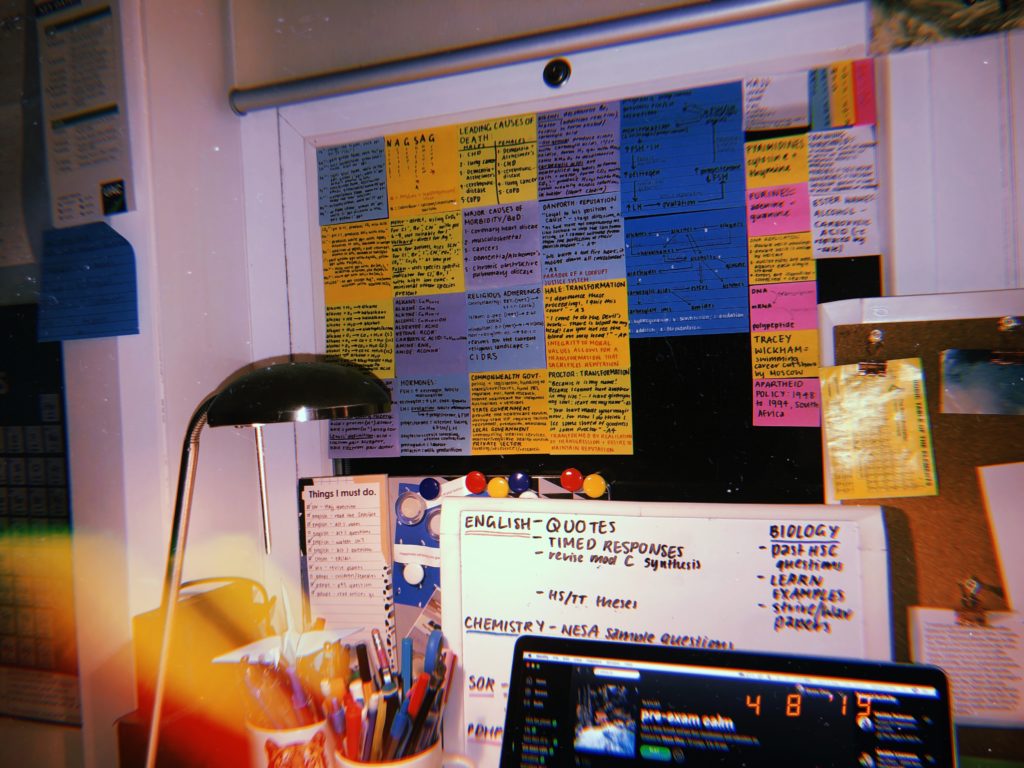
The positive effect of goal making is well documented, and most people know this part, but this is not the most important thing I learnt about goals.
The first term of year 12 was the most challenging for me, despite being the least academically rigorous, because I had unrealistically high and inflexible goals. I didn’t factor in that year 12 may be harder than I expected, or that I would be busier than I thought, and more tired, or the effect of non-school stresses. In the first term, when I didn’t achieve a rank in the top 10%, I felt like my entire plan was falling apart! After one unexpected drama mark, I almost quit one of my favourite subjects. I thought year 12 was only going to get worse from here.
It didn’t. I spoke to friends, past students and teachers, and realised that this is hard, and things can fluctuate. I started considering the range of best to worst-case scenarios and mentally preparing myself for things not to go to plan. If I had my time again, I would have practised this even more. You would be surprised how much emotional recovery time you can turn into productivity by not torturing yourself over a terrible mark. To speed the process up, I wrote reflections after receiving a result I wasn’t happy with, and even though most started as an internal rant, they all ended with a game plan.
And in respect to drama, which I nearly quit in term one, it ended up being my strongest subject overall with a mark of 97, and my group performance was nominated as one of the best in the state!
Lesson #2: Taking every chance to blend what you have to do with what you want to do
Whenever I had any freedom in projects or assignments, I went out of my way to do something that I was interested in, or that would be useful to me.
For example, two of the subjects I chose were Modern Greek (as a language study) and Visual Art. In art, I opted to create a kind of exhibition drawing inspiration from my grandfather’s experience as a Greek immigrant to Australia. As part of my artmaking, I did interviews with my grandfather, and I absolutely loved hearing his stories in depth and spending more time with him. I also was able to practice my Modern Greek language skills during the interviews and in the videos I edited of our conversations, as well as in my research of his life’s documents.
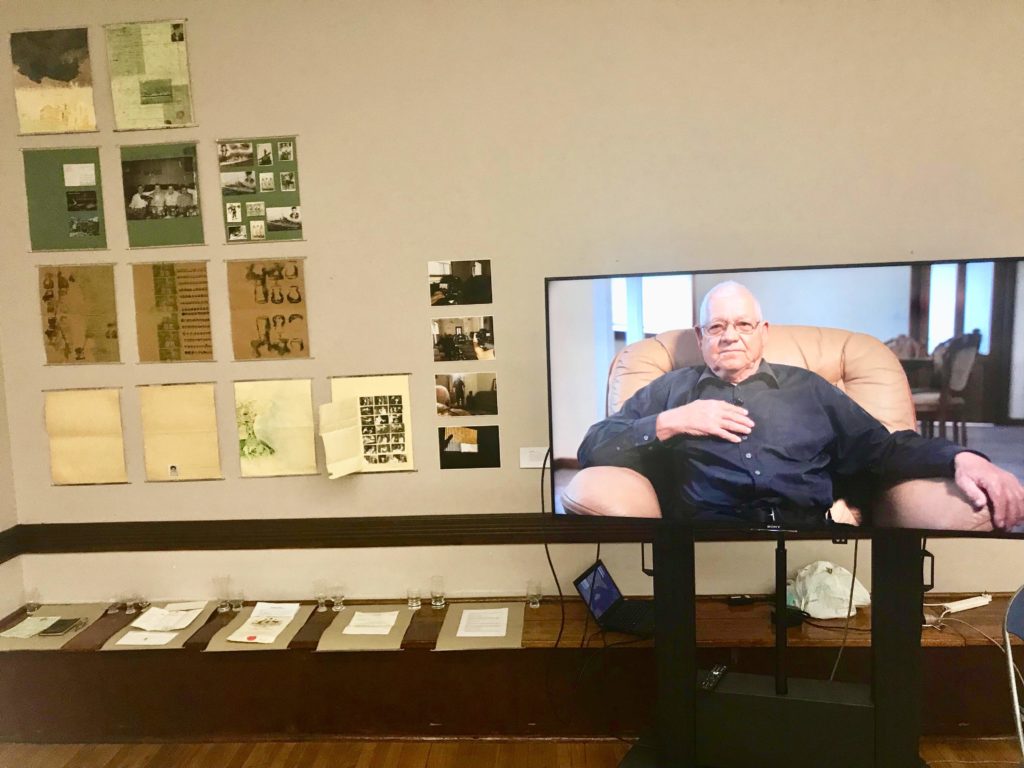
Similarly, whenever there was a presentation type project, I always asked if I could make a video, and often the answer was “yes”! Even if making the video was more effort than the alternative, I did not regret using the chance to sharpen my video-making skills, because it is a passion of mine and something I hope to do in the future.
Lesson #3: Taking on leadership
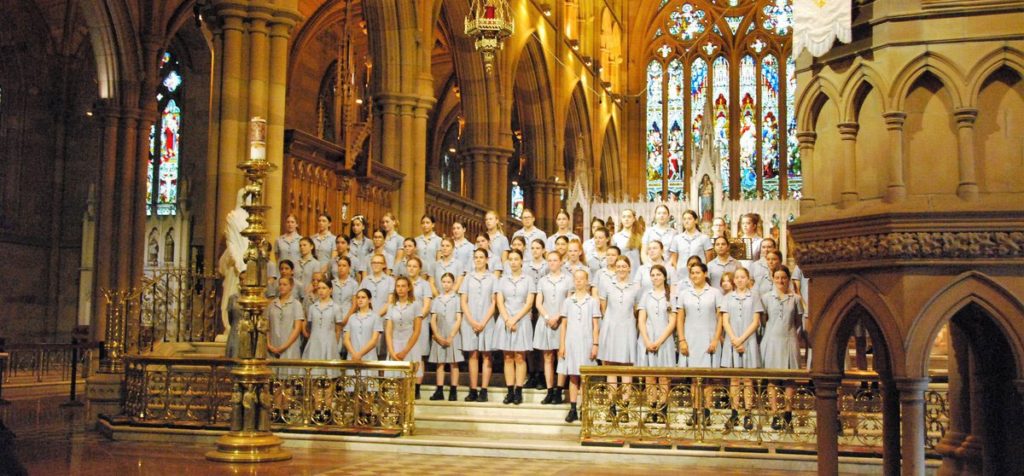
I was fortunate enough to be elected as Student Representative Council Captain at my high school St Vincent’s, and along with my Co-Captain Stella Walies, we spent hours sending in proposals, chasing up people in person and on email, as well as attending meetings before school. It was stressful at times, but also rewarding to represent our student body and practice making positive changes in an organisation. Some of our initiatives included:
- A very lively and successful SRC Second Hand Stall
- We encouraged students encouraged to buy and sell their second-hand school items such as uniforms and textbooks. This provided an opportunity for previous Vinnies students to reconnect with the community and reduce the cycle of overconsumption and fast-fashion.
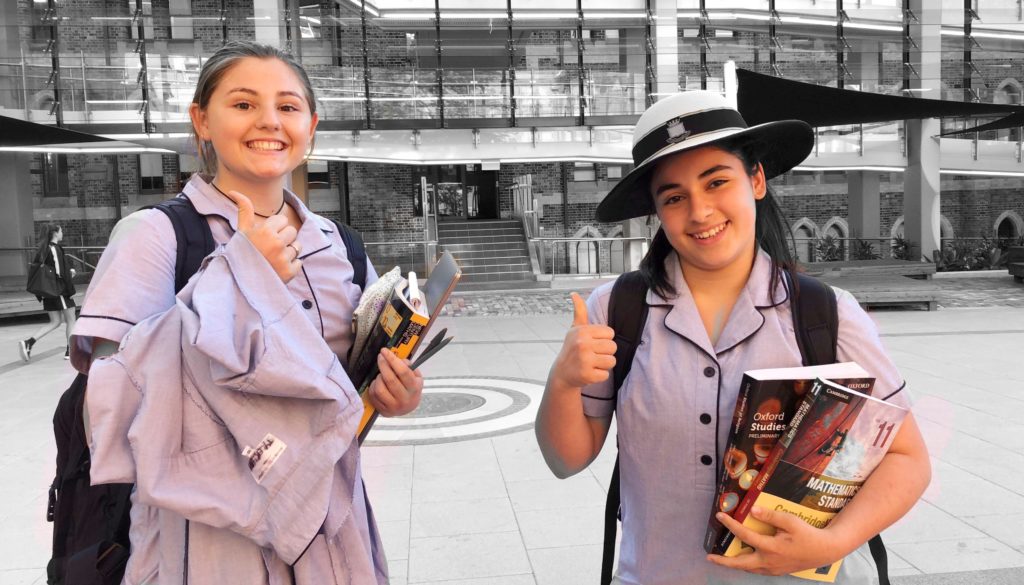
- Physical SRC Suggestion Boxes and a Virtual Suggestion Box
- We gave students a chance to have their thoughts heard. They were able to leave paper notes or fill in a Google Form so we could directly respond to their requests.
- Student Voice Forum
- This forum provided a platform for communal discussions surrounding students’ ideas of new initiatives.
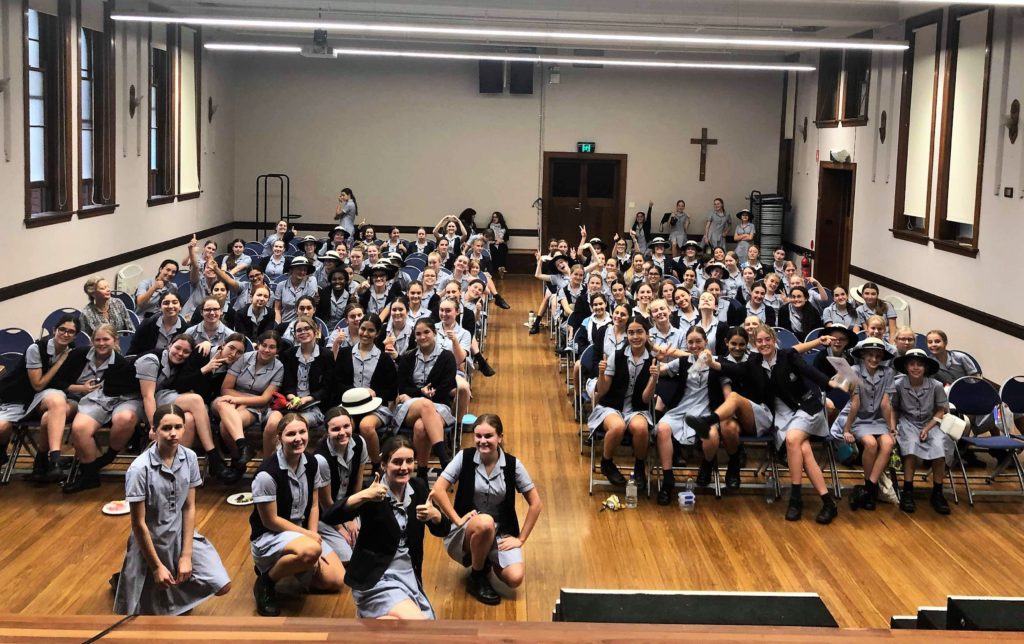
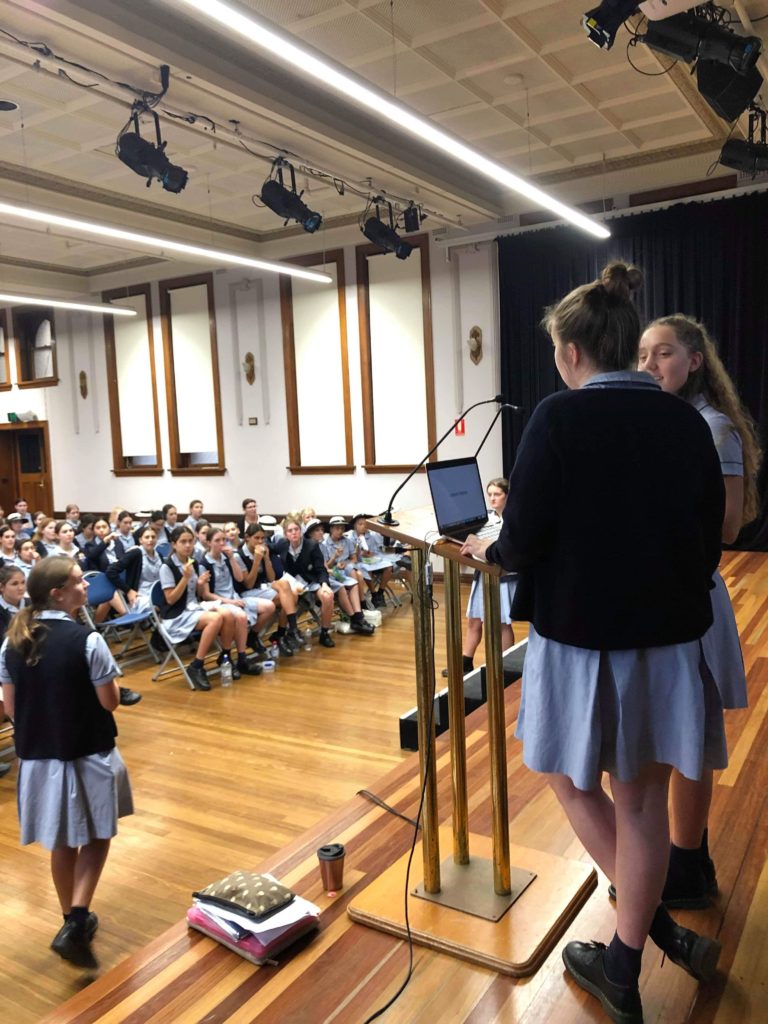
- The implementation of Year 12 Lunch Leave
- Year 12 students loved this new privilege that enabled them to have lunch outside the school grounds in the vibrant Kings Cross/Darlinghurst area on Fridays.
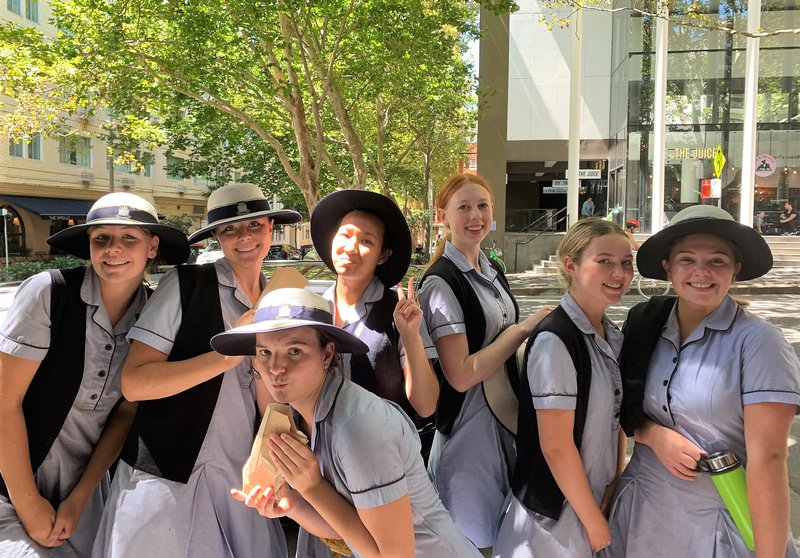
- SRC Tutoring
- This tutoring system allowed for senior students to help junior students. In this way, older students could volunteer and grow their teaching experience, while younger students could benefit from free student-to-student learning.
- Year 11 Seminars
- These seminars were designed to allow current year 12 students to guide to year 11 students entering their first term of senior studies, providing them with valuable tips and insights from recent past experience.
- SRC Networking Evening
- Utilising the rich community of St Vincent’s alumnae, the SRC held the first-ever event that facilitated conversations regarding possible career paths and life after school.
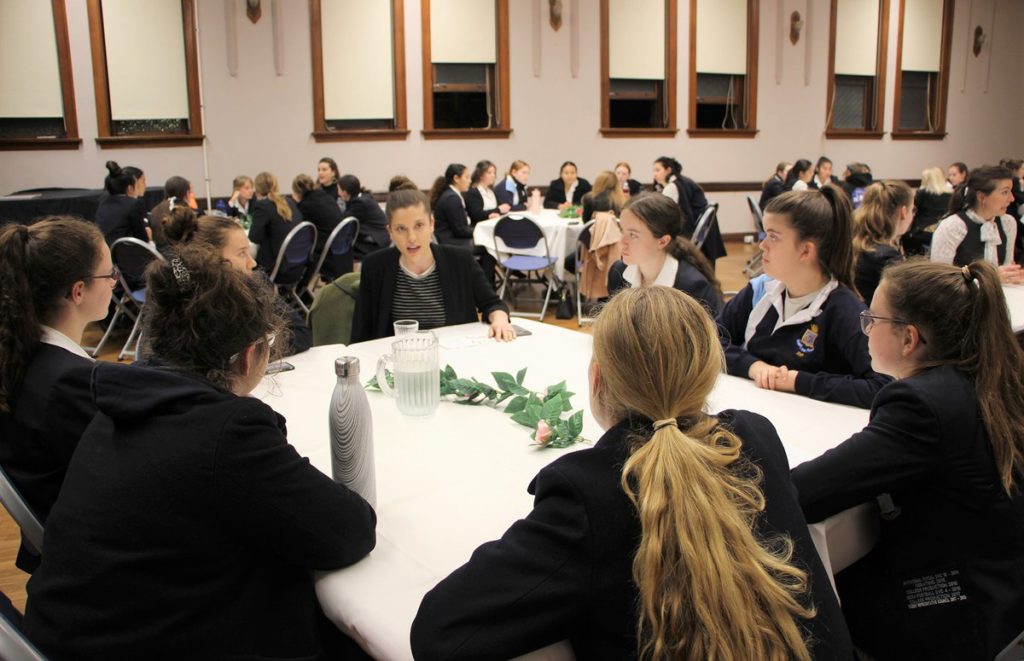
- A new Year 12 Common Room
- A personal space just for students in their final year, equipped with couches, tea kettles and a microwave.
Even without a formal title, I saw so many of my peers in their final year using their experience and seniority to implement all types of initiatives aligned with their own interests. If you think you can, I would recommend to at least try. It’s excellent practice in a safe environment.
Lesson #4: Getting involved in school life and keeping up the extracurricular activities
I always enjoyed being involved in school life, but in the final year, these experiences become even more exciting and memorable with the process of handing down the baton to younger students.
I enjoyed continuing to work with my school’s social justice focus, participating in events such as the Smith Family’s Student2Student Reading Program. I signed up to help a younger student struggling with literacy at a remote school by reading with her over the phone 3 times a week. My buddy gave me the gift of renewed appreciation for my own teachers.
I also continued with my swimming training, and I cannot recommend staying with sport enough! To be fair, if you want to be academically or sportingly competitive, most students find that you have to make sacrifices, and I cut down training to about two or three times a week. It was still such a fantastic way to clear my head, keep fit and spend time with friends – all in one activity.
Performing in my College’s annual production, Rime of the Ancient Mariner, was another enjoyable experience, heightened by performing for the last time!
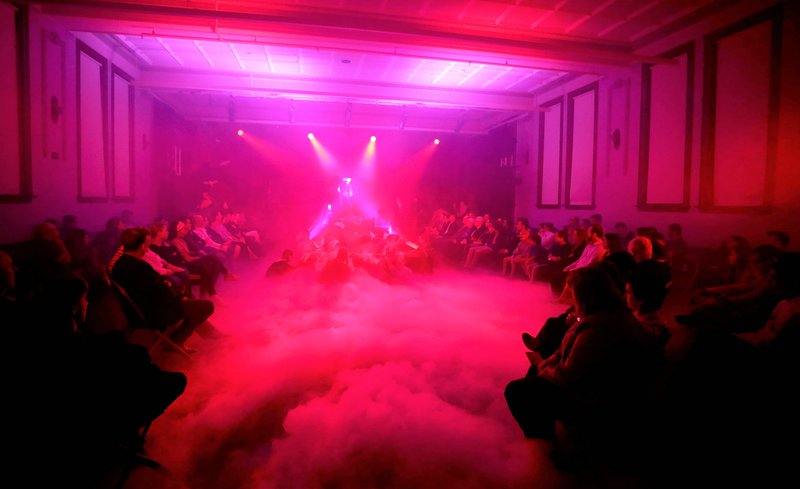
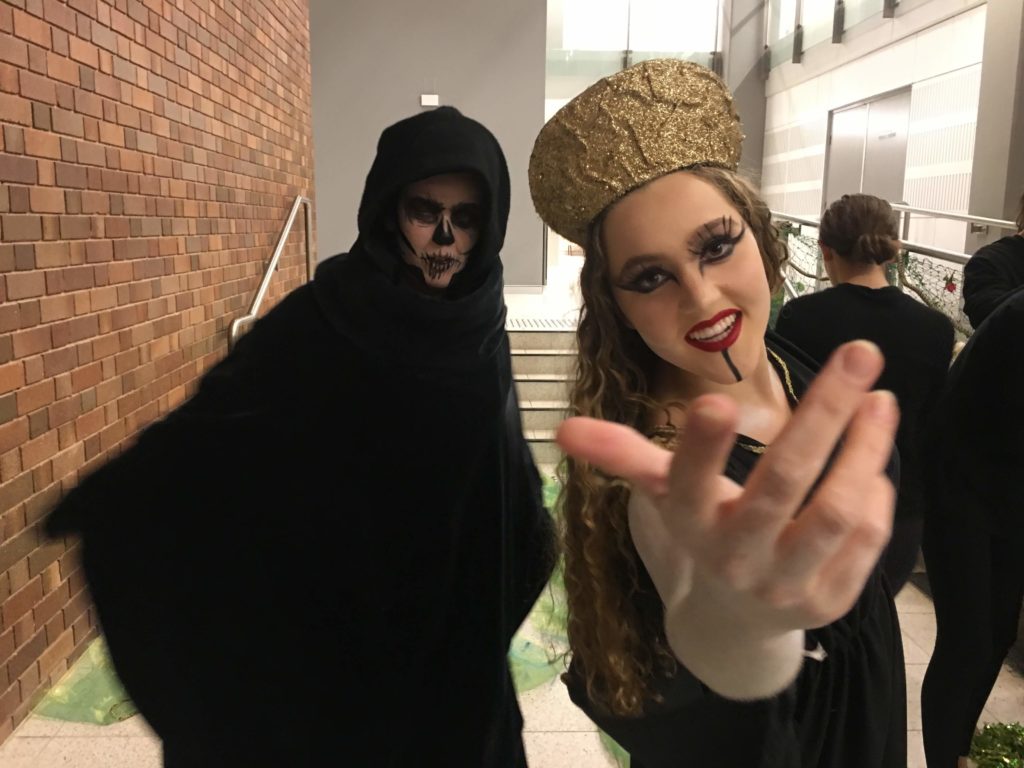
With all these extracurriculars, I thought I’d try to complete my Gold Duke of Edinburgh Award, in which a participant must show commitment to six sections:
- Physical Recreation (competitive swimming training)
- Skills (dramatic performance with the school play, as well as learning to drive)
- Voluntary Service (volunteer tutoring with the Student2Student Reading Program)
- Adventurous Journey (two week-long hikes through the Australian landscape)
- Gold Residential Project (in which I participated in an Immersion to a First Nations Australian community)
You may know of the Duke of Ed, and I highly recommend completing the Bronze, Silver or Gold level of this award. It pushed me out of my comfort zone a bunch of times and encouraged me to get involved in activities that have really shaped me. Also, it looks great on a resume or a LinkedIn profile :)
Lesson #5: Celebrating the milestones!
Celebrating the milestones is undoubtedly one of the best parts of the final year of high school. School carnivals, final school events, 18th’s party, Graduations, Formals (aka “Homecoming”) and more.
The only advice I can give is perhaps to let go of expectations about how these significant events should be. In an era of social media, vlogs, and teen movies, I found myself or my friends sometimes had overexcited expectations about how events like our Formal or Gradation might go down. I found these events so much more gratifying when we just enjoyed what was happening without comparing it to anything at all.
After it all, I had a couple great trips with friends, including one to Hyams Beach!
Overall…
2019, my last year of high school, was truly one of the most taxing yet wondrous experiences of my life. This year, I am taking a kind of recovery year before I start university to do some travel and work. I’ll be studying for four months in New York with the School of New York Times, and then catching up with some friends around America and Europe.
Best of luck to anyone starting their final year of high school, and hats off to all who have already done it! Happy New Year, everyone!
Well done you. ;)
We’re all so proud of your accomplishments.
Congratulations on surviving and excelling through year twelve!
Take care and have fun on your overseas travels.
Trust you will return re-charged and ready to tackle university.
You are the perfect candidate to take a liberal arts degree (eg:Campion College)
All the best.
Regards,
Selwyn.
Forgot to add:- you offer some very sagacious advice!!
Selwyn